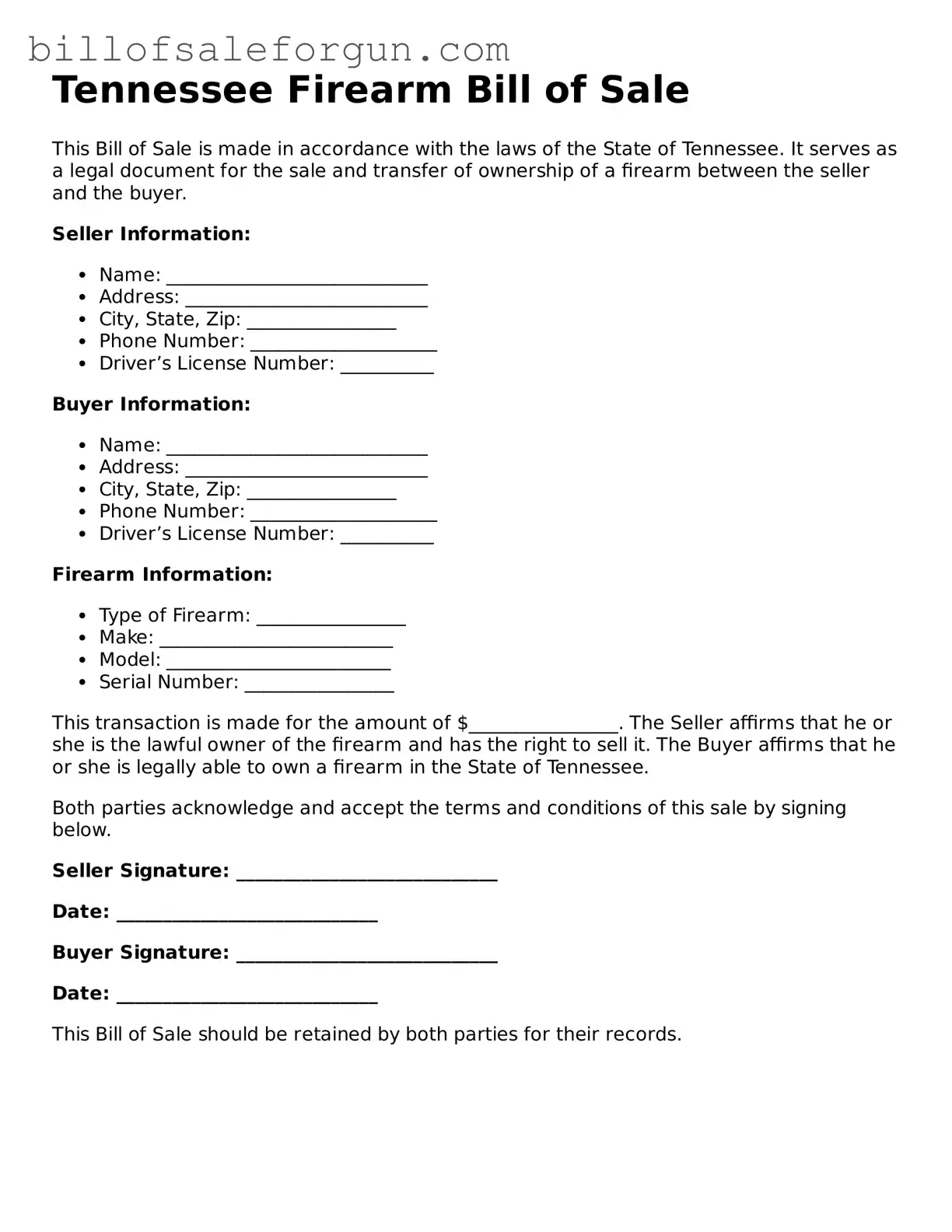Similar forms
The Tennessee Firearm Bill of Sale form shares similarities with a general Bill of Sale. Both documents serve as proof of a transaction between a buyer and a seller. They outline the details of the item being sold, such as the description, price, and the parties involved. A general Bill of Sale is often used for various types of personal property, including vehicles and equipment, making it a versatile document in private sales.
Another document akin to the Firearm Bill of Sale is the Vehicle Bill of Sale. This form is specifically designed for the transfer of ownership of a vehicle. Like the Firearm Bill of Sale, it includes essential information such as the vehicle's make, model, year, and Vehicle Identification Number (VIN). Both documents require signatures from both parties to validate the transaction, ensuring a clear record of ownership transfer.
The Lease Agreement is also similar in that it formalizes an arrangement between two parties. While it typically pertains to rental properties, it establishes terms and conditions, much like a Bill of Sale does for the sale of goods. Both documents require clear identification of the parties involved and detail the responsibilities and rights of each party, ensuring transparency in the agreement.
A Purchase Agreement shares features with the Firearm Bill of Sale as well. This document outlines the terms of a sale, including price, payment method, and item description. It is used for various transactions, such as real estate and personal property sales. Both forms serve to protect the interests of both the buyer and seller, providing a legal record of the agreement.
Lastly, a Gift Receipt can be compared to the Firearm Bill of Sale in that it documents the transfer of ownership, albeit without a monetary exchange. A Gift Receipt details the item given, the giver, and the recipient. While the Firearm Bill of Sale is used for transactions involving payment, both documents serve to establish proof of transfer, ensuring clarity and legality in ownership changes.
